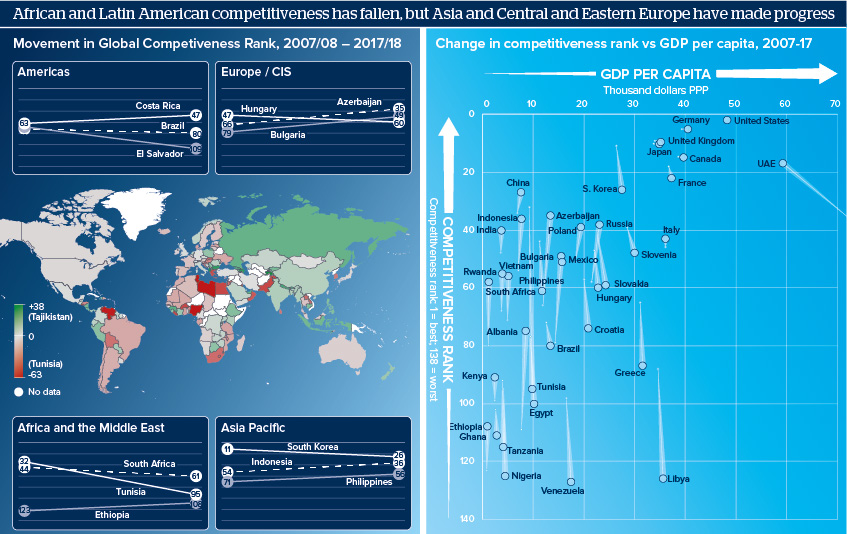The scope to increase global productivity is immense
Global growth is picking up, but the lack of structural reform from 2007-17 is holding back countries across the world
Source: 2017/18 World Economic Forum Global Competitiveness Report, IMF World Economic Outlook
Outlook
The World Economic Forum (WEF) defines competitiveness as the set of institutions, policies and factors that determine an economy’s productivity. The 2017/18 report shows that one-third of countries have lower scores than in 2007, despite easy monetary policy and robust global growth.
North Africa and Venezuela stand out, but the declines in Argentina and Brazil and in Nigeria and South Africa are behind the deterioration in their regions’ growth prospects.
The report recommends improving financial stability as countries have less scope to cope with another crisis. Innovation is happening, helping emerging economies catch up with advanced nations, but more needs to be done to improve workforce rights and flexibility.
Impacts
- China has leaped 70 places for financial development in ten years to 48th, but this is still well below its overall ranking of 27th.
- China’s tech readiness ranking is unchanged at 73rd from 2007, but Russia and other Eastern and Central Europeans have made solid progress.
- Brazil has fallen more than 40 places for innovation in ten years but Argentina has gained 19, Mexico is up 15 and China and Indonesia 20.
- Italy, South Korea, Mexico, Thailand, Hungary, South Africa and Tunisia’s ranking for institutions is 24 or more places lower than 2007.
See also
- This year is crucial for the 'productivity puzzle' - Feb 5, 2018
- Prospects for the global economy in 2018 - Nov 1, 2017
- UK low-skilled workers face falling further behind - Oct 18, 2017
- The global economy will enter new era - Oct 4, 2017
- Multilateral development banks pivot to private sector - May 19, 2017
- More graphic analysis
